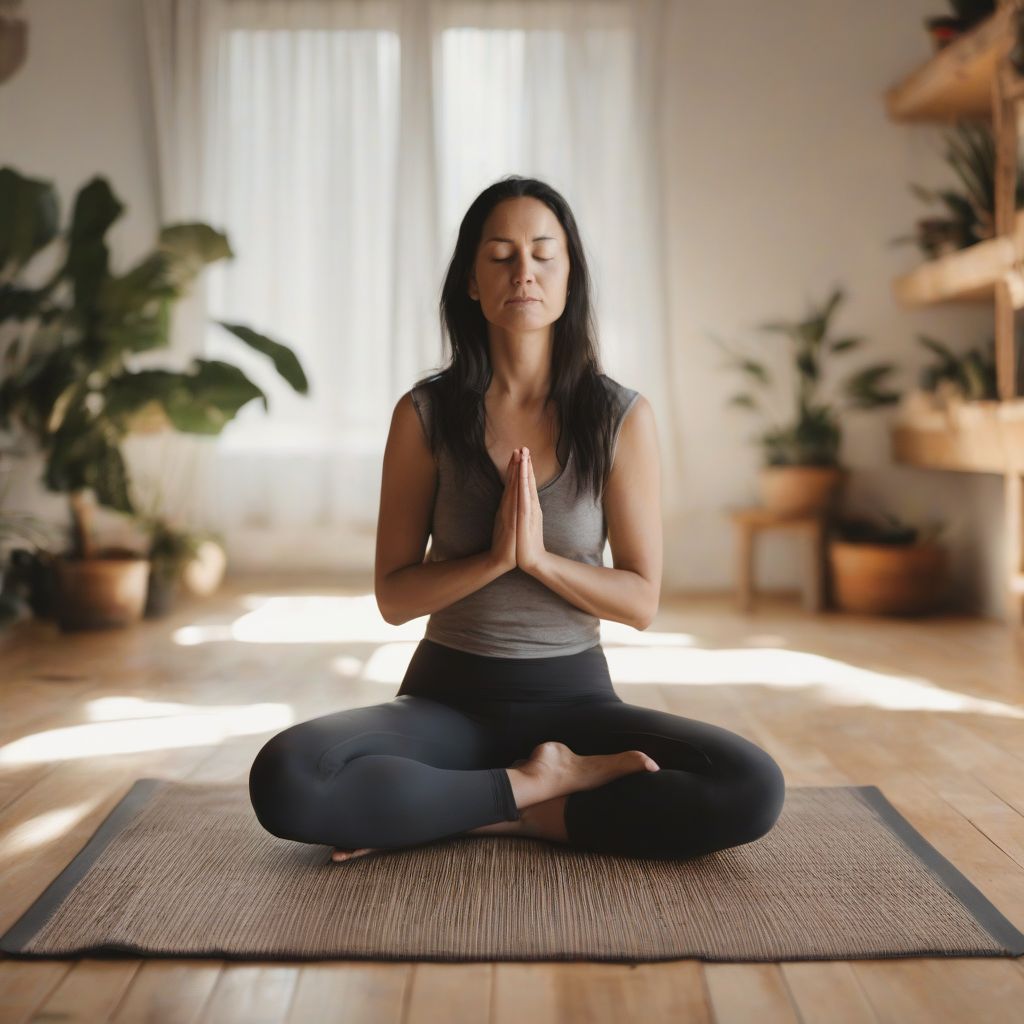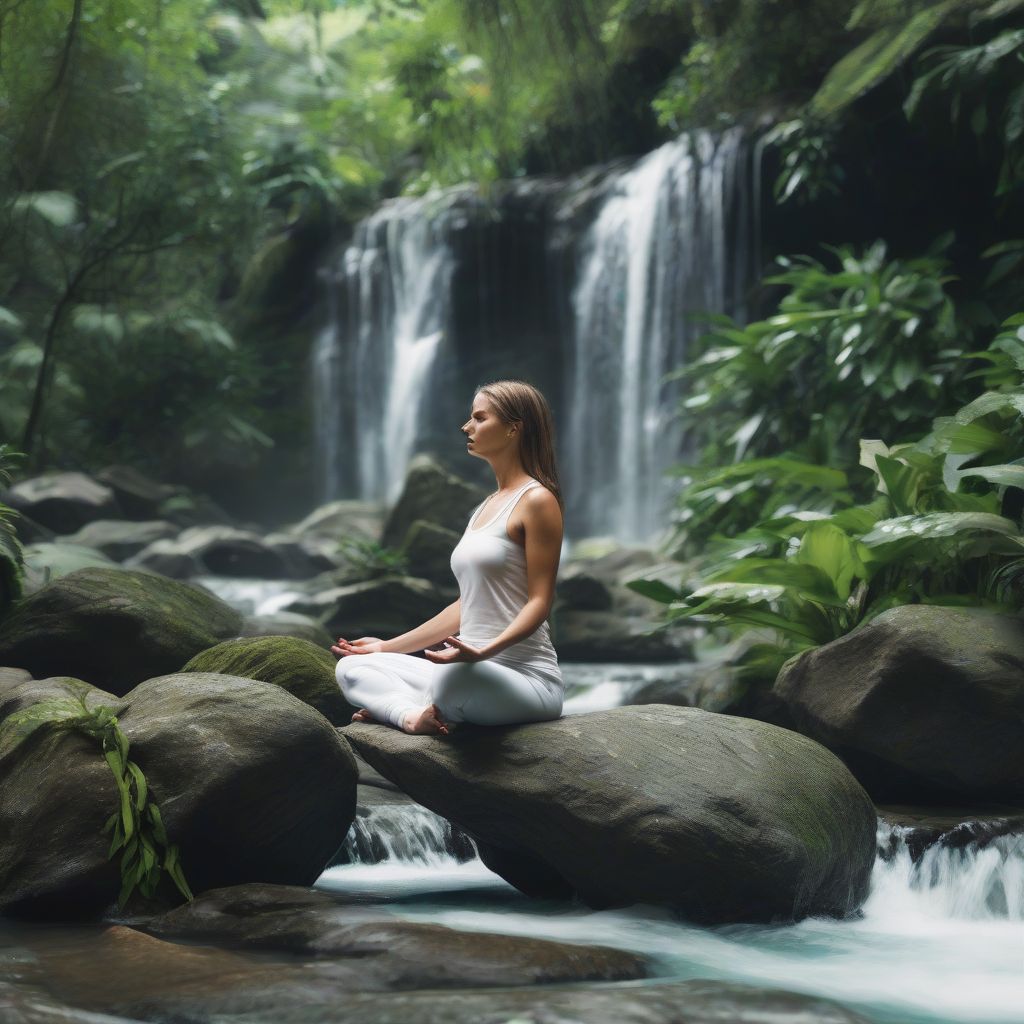We’ve all been there – that overwhelming feeling when life’s demands leave us feeling like a tightly wound spring. Stress, unfortunately, is a universal experience. But what if I told you that you have the power to unlock a calmer, more peaceful you? It’s true! Relaxation techniques can be your secret weapon in combating stress and reclaiming your well-being.
Understanding the Stress Response and Relaxation’s Impact
Before we dive into the how-to’s, let’s briefly explore why relaxation techniques are so effective. Imagine this: you’re faced with a challenging situation. Your heart races, your breathing becomes shallow, and your muscles tense – this is your body’s natural “fight-or-flight” response kicking in. While this response is helpful in truly dangerous situations, our modern lives tend to trigger it even when the threat isn’t life-or-death (think deadlines, traffic, or relationship issues).
Relaxation techniques help counteract this stress response by:
- Slowing your heart rate: As you relax, your heart rate naturally decreases, promoting a sense of calm.
- Lowering blood pressure: Relaxation techniques help dilate blood vessels, reducing strain on your cardiovascular system.
- Easing muscle tension: When stress causes your muscles to clench, relaxation techniques encourage them to release, alleviating physical discomfort.
- Deepening your breathing: By focusing on slow, deep breaths, you increase oxygen intake and signal your body to unwind.
A World of Relaxation Techniques at Your Fingertips
The beauty of relaxation techniques lies in their diversity – there’s something for everyone! Let’s explore some popular and effective options:
1. Deep Breathing Exercises: Your Portable Stress Reliever
Deep breathing is incredibly simple yet profoundly effective. When we’re stressed, our breath becomes short and shallow. By consciously taking slow, deep breaths, we activate the parasympathetic nervous system, which is responsible for calming us down.
Try this: Inhale deeply through your nose, letting your belly expand. Hold for a few seconds, then exhale slowly through your mouth. Repeat for a few minutes whenever you feel stress creeping in.
 Woman Practicing Deep Breathing
Woman Practicing Deep Breathing
2. Meditation: Cultivating Inner Peace and Focus
Meditation has been practiced for centuries and is renowned for its stress-reducing benefits. It involves focusing your mind on a particular object, sound, or sensation to achieve a state of mental clarity and emotional calmness.
Getting started: Find a quiet spot, sit comfortably, and close your eyes. Focus on your breath, a mantra, or guided meditation. Don’t worry if your mind wanders – gently guide it back to the object of your focus.
3. Yoga and Tai Chi: Harmonizing Mind and Body
Yoga and Tai Chi are ancient practices that combine gentle movements, deep breathing, and meditation. These practices enhance flexibility, balance, and mindfulness while calming the nervous system and reducing stress hormones.
Find your flow: Explore local classes or online resources to find a style that resonates with you.
4. Progressive Muscle Relaxation: Releasing Tension
Progressive muscle relaxation involves systematically tensing and releasing different muscle groups in your body. This process increases your awareness of physical sensations and promotes deep relaxation.
Practice makes perfect: Find a comfortable position, close your eyes, and starting with your toes, tense and then release each muscle group, moving up your body.
5. Spending Time in Nature: The Healing Power of the Outdoors
Nature has an incredible ability to soothe our souls. Studies have shown that spending time outdoors lowers stress hormones, improves mood, and boosts overall well-being.
Escape the everyday: Take a walk in the park, hike in the woods, or simply sit by a lake and soak in the serenity.
 Woman Meditating in Nature
Woman Meditating in Nature
The Ripple Effect: Benefits Beyond Stress Reduction
The benefits of incorporating relaxation techniques into your life extend far beyond stress reduction. Here’s how these practices can enhance your overall well-being:
- Improved Sleep Quality: Relaxation techniques quiet the mind, making it easier to fall asleep and stay asleep.
- Enhanced Focus and Concentration: By calming a racing mind, relaxation practices improve your ability to concentrate and stay present.
- Greater Emotional Regulation: Regularly engaging in relaxation techniques equips you with tools to manage challenging emotions more effectively.
- Increased Self-Awareness: These practices encourage you to tune in to your body’s signals, fostering a deeper understanding of your needs.
- Reduced Risk of Chronic Diseases: By mitigating the negative impacts of chronic stress, relaxation techniques can contribute to a lower risk of conditions like heart disease and depression.
Making Relaxation Techniques a Part of Your Life
Incorporating relaxation techniques into your daily routine doesn’t have to be overwhelming. Start with small, manageable steps:
- Schedule it in: Just like you schedule important appointments, block out time for relaxation.
- Start small: Begin with 5-10 minutes a day and gradually increase the duration as you become more comfortable.
- Experiment and find what works for you: Not all techniques resonate with everyone. Explore different options and discover what brings you the most peace.
- Be patient: Learning relaxation techniques is a journey, not a destination. Be kind to yourself and allow time for the benefits to unfold.
[amazon bestseller=”stress relief”]
Finding Your Center: A Journey to Tranquility
Remember, stress doesn’t have to rule your life. By embracing the power of relaxation techniques, you can reclaim your inner peace, enhance your well-being, and navigate life’s challenges with greater resilience.
